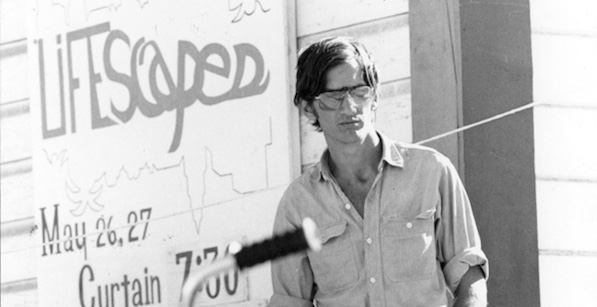Re-watching Margaret Brown‘s documentary Be Here to Love Me, a documentary about the singer/songwriter, Townes Van Zandt, I started thinking on the subject of mental illness. Townes declares at some point that in order to make it as a professional musician, he had to give up “everything,” and that included his family (he had three kids from two of his three ex-wives) as well as his financial strength and happiness. What he did not give up were alcohol and heroin. In fact, it was probably best that he did mostly estrange himself from his family; there’s an anecdote about him shooting up in front of his eight-year-old son at one point. I’m sure an act this extreme was the result of severely damaged soul. And it’s quite likely that Townes suffered from undiagnosed and untreated mental illness.
Listen to Filmwax Radio: Margaret Brown
And yet, the man could create such beautiful music. While he never had a hit single or a best-selling album, Townes was widely admired by the country music community. Brown’s film certainly showcases the evidence of this well and in great detail, including interviews with Emmylou Harris, Willie Nelson, Kris Kristofferson, Lyle Lovett, Steve Earl and Guy Clark… you know, the usual suspects. These are the sage elders of the alt country scene. They’ve all recorded songs by the documentary’s scribe. In addition to Margaret’s access to these legendary talking heads —or more aptly singing heads— she hit pay dirt by getting permission to use footage from James Szalapski’s “outlaw documentary” Heartworn Highways (FilmBuff). While most of the footage she used in Be Here to Love Me was from outtakes, there is one scene copied and pasted from that earlier documentary. Townes is playing the blues on his guitar in his trailer home while is girlfriend looks on. Joining them in their tight quarters is their venerable African American neighbor, Uncle Seymour Washington, who sits in the background thoughtfully. As Townes continues his song, you see Washington begin to cry. By the end of the shot he’s openly weeping. It’s one of the most touching scenes I’ve ever seen in any documentary.




